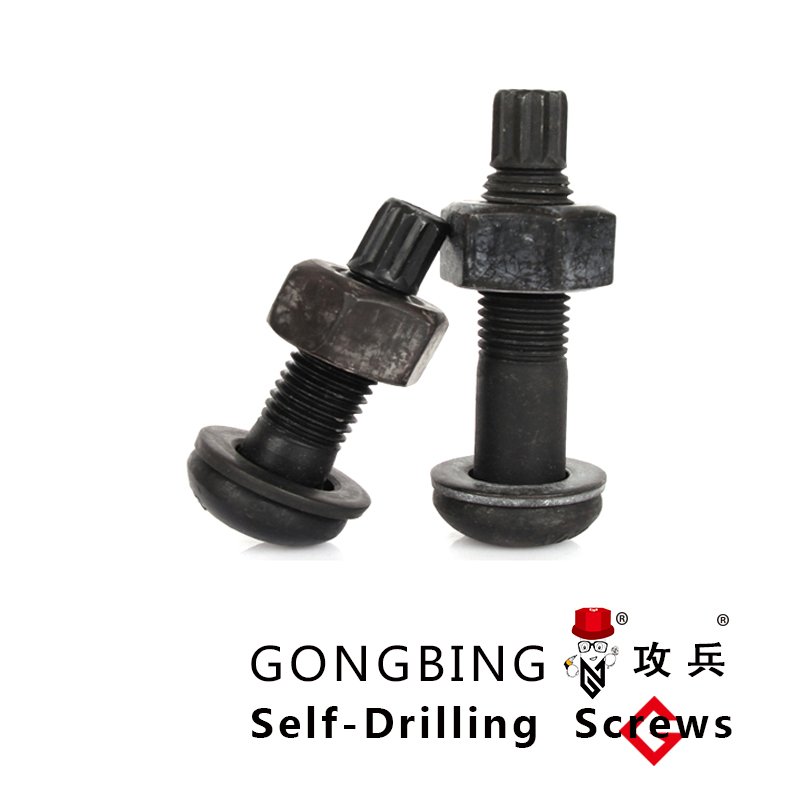metal screws self drilling
Understanding Metal Screws The Versatility of Self-Drilling Screws
In the realm of construction and manufacturing, the choice of fasteners can significantly influence the integrity and durability of a project. Among various fastening options, metal screws, particularly self-drilling screws, have gained considerable popularity due to their efficiency and reliability. This article delves into the characteristics, benefits, applications, and considerations surrounding metal self-drilling screws.
What Are Self-Drilling Screws?
Self-drilling screws, also known as Tek screws, are a type of fastener that features a drill point enabling the screw to create its own hole as it is driven into the material. This design eliminates the need for pre-drilling, which not only speeds up the installation process but also reduces labor costs. Typically, these screws are constructed from high-quality steel or stainless steel, ensuring durability and resistance to corrosion.
Key Characteristics
1. Design Self-drilling screws possess a sharp point that resembles a drill bit. This point is critical as it allows the screw to penetrate various materials, including metal, wood, and plastic, without the need for additional tools.
2. Threading The threads on self-drilling screws are designed to provide a secure grip in the material. Depending on the application, the screws may feature coarse or fine threads, with coarse threads providing better holding power in softer materials.
3. Coatings Many metal self-drilling screws come with protective coatings, such as zinc plating or epoxy, to enhance corrosion resistance. This is particularly important in outdoor applications where exposure to moisture and environmental conditions can lead to rust and deterioration.
Benefits of Using Self-Drilling Screws
1. Time Efficiency One of the most significant advantages of self-drilling screws is the time they save. The ability to drill and fasten in one step streamlines the installation process, making them ideal for large-scale projects or tight deadlines.
2. Cost-Effectiveness Although self-drilling screws may have a higher upfront cost compared to traditional screws, the time saved during installation can lead to overall cost savings. Fewer labor hours mean more efficient project execution.
3. Versatility These screws are suitable for a variety of applications, including construction, HVAC systems, metal roofing, and woodworking projects. Their adaptability makes them a favorite among contractors and DIY enthusiasts alike.
4. Strong Hold The design of self-drilling screws ensures a secure and enduring hold in various materials. This capability makes them a reliable choice, particularly in applications where structure and stability are paramount.
metal screws self drilling

Applications of Self-Drilling Screws
Self-drilling screws are commonly used in a wide array of applications
- Metal Fabrication In the manufacturing of metal structures, these screws ensure a strong bond between metal components, enabling the construction of frames, brackets, and supports.
- Roofing and Siding In the installation of metal roofing and siding, self-drilling screws play a vital role, providing a secure fastening solution that withstands weather-related stress.
- Automotive Industry The automotive sector utilizes self-drilling screws for assembling parts and components, where speed and reliability are crucial.
- Home Improvement Projects Whether in furniture construction or DIY home renovations, these screws offer a practical solution for various fastening needs.
Considerations When Choosing Self-Drilling Screws
When selecting metal self-drilling screws for a specific project, several factors should be considered
- Material Compatibility Ensure that the screw material is suitable for the materials being fastened together. Stainless steel screws are often preferred for outdoor applications due to their corrosion resistance.
- Size and Length Choosing the correct size and length of the screw is crucial for achieving a secure fit. This may require evaluating the thickness of the materials being joined.
- Drive Type Different types of drive heads (e.g., Phillips, hex, or slotted) offer varying grips for installation tools. Opt for a type that suits the tools available and the specifics of the work environment.
Conclusion
Metal self-drilling screws are indispensable tools in the fastener market, combining efficiency, adaptability, and strength. Their ability to simplify the fastening process makes them invaluable in both professional and DIY settings. By understanding their characteristics and applications, users can make informed choices, ensuring successful and durable results in their projects.
-
Weatherproof Plastic Expansion Anchors for OutdoorNewsJun.06,2025
-
Sustainability in the Supply Chain: Eco-Friendly TEK Screws ProductionNewsJun.06,2025
-
Load-Bearing Capacity of External Insulation FixingsNewsJun.06,2025
-
Double Head Bolts: Enhancing Efficiency in Industrial MachineryNewsJun.06,2025
-
Corrosion Resistance in Chipboard Screws: Coatings for Wholesale DurabilityNewsJun.06,2025
-
Butterfly Toggle Bolts : Enhancing Structural ResilienceNewsJun.06,2025
